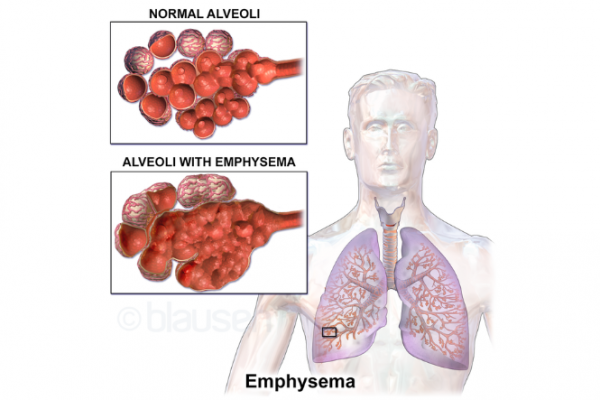Smoking is the most common cause of emphysema. Cigarette smoking not only destroys lung tissue, it also irritates your airways. This causes inflammation and damage to the linings of the bronchial tubes. This results in swollen airways, mucus production and difficulty clearing the airways. All of these changes can lead to shortness of breath.
Air pollutants in the home and workplace, genetic (inherited) factors (alpha-1 antitrypsin deficiency), and respiratory infections can also play a role in causing emphysema.

Image credit: Blausen Medical Communications, Inc.(external link) Wikimedia Commons






